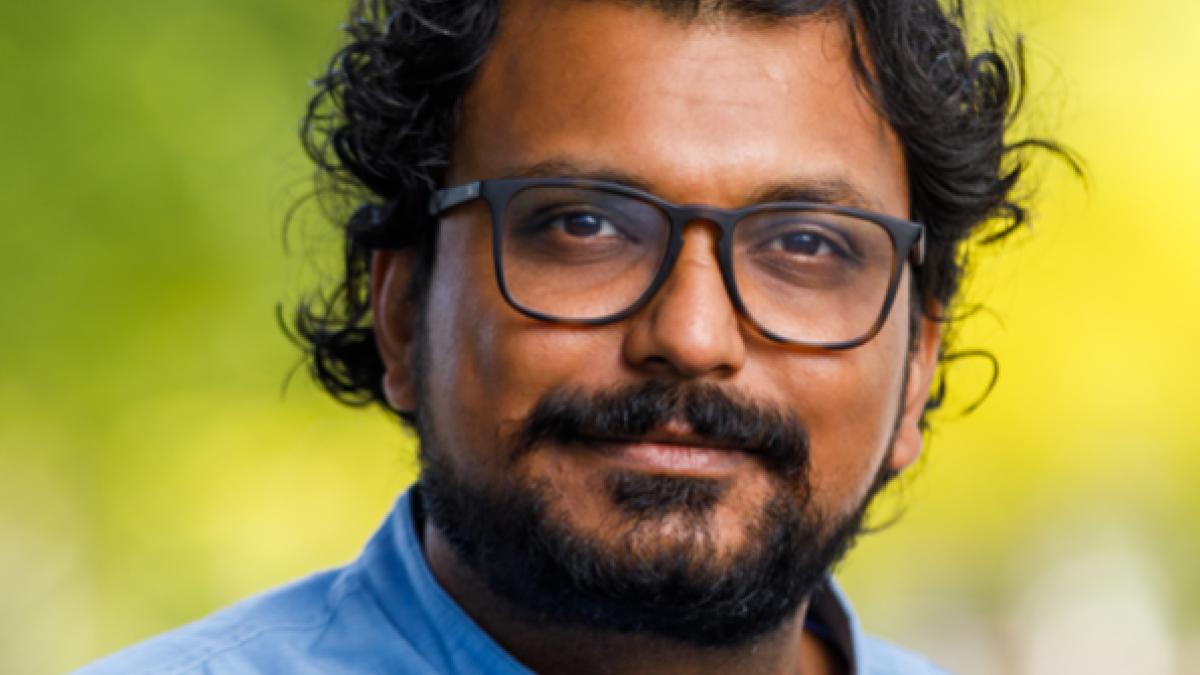ASU professor wins Scialog Award to fund research on development of neurological diseases

Abhishek Shrivastava, assistant professor in the School of Life Sciences and the Biodesign Institute, and his collaborator, David J. Durgan, assistant professor of anesthesiology and cellular and molecular physiology at the Baylor College of Medicine, were selected as one of six multidisciplinary teams to receive the 2021 Scialog Collaborative Innovation Award for their project that looks at how bacterial outer membrane vesicles act as modulators of microbiota-brain communication involved in the development of neurological diseases.
People don't generally associate toothbrushing with Alzheimer's disease. But in his latest research, Abhishek Shrivastava, assistant professor in the School of Life Sciences and the Biodesign Institute at Arizona State University, is exploring how these two things are indeed connected.
All humans have bacteria in their mouths. If we don't brush our teeth often, there will be a higher number of bacteria found in our mouths. Research has shown that this can lead to certain proteins being present, and these proteins can travel to the brain and potentially lead to Alzheimer's disease.
In his lab, Shrivastava will be examining two questions: How do these proteins make it to the brain? And what are the delivery vehicles?
Shrivastava and his collaborator on the project, David J. Durgan, assistant professor of anesthesiology and cellular and molecular physiology at the Baylor College of Medicine, were selected as one of six multidisciplinary teams to receive the 2021 Scialog Collaborative Innovation Award.
“We are incredibly proud of Dr. Shrivastava for being selected as a recipient of the Scialog Collaborative Innovation Award,” said Kenro Kusumi, dean of the natural sciences in The College. “The high impact work of the Shrivastava Lab on the connection between microbiome and neurodegenerative diseases is a prime example of the innovation taking place within the School of Life Sciences and the Biodesign Institute. This well-deserved award will enable Dr. Shrivastava and his team to continue driving transformation and to innovate for biomedical discovery.”
The award stemmed from the first-ever Scialog: Microbiome, Neurobiology and Disease virtual conference in April that brought together more than 50 scientists from a variety of disciplines to propose cutting-edge research to help transform our understanding of the gut-brain axis at the chemical, microbial and immunological level.
During the two-day conference, attendees met different scientists from the U.S. and Canada and attended seminars to identify someone they would like to collaborate with. Through this process, Shrivastava met Durgan and they came up with the idea to look at how bacterial outer membrane vesicles act as modulators of microbiota-brain communication involved in the development of neurological diseases.
“What was encouraging about this award was to receive funding for an idea — which I think is kind of high-risk, high-reward in a sense,” Shrivastava said. “To have the freedom to implement that was very satisfying. Even more than that, having a collaboration of the kind that I have established through this at a different university was very helpful.”
Shrivastava’s background is in biophysics and microbiology, and he is interested in bacterial motilityThe ability of bacteria to move independently using metabolic energy. and bacterial protein secretion mechanismsThe cellular devices used by pathogenic bacteria to secrete their virulence factors (mainly of proteins) to invade the host cells., as well as how the microbiome impacts human health.
In his lab, Shrivastava has eight people contributing to research including three postdoctoral students, three PhD students, one master's degree student and one undergraduate student.
The $55,000 award will support Shrivastava’s research for one year. Shrivastava and Durgan will simultaneously complete complementary experiments and, depending on the outcome, they plan on applying for additional grants.
More Science and technology

ASU student researchers get early, hands-on experience in engineering research
Using computer science to aid endangered species reintroduction, enhance software engineering education and improve semiconductor…

ASU professor honored with prestigious award for being a cybersecurity trailblazer
At first, he thought it was a drill.On Sept. 11, 2001, Gail-Joon Ahn sat in a conference room in Fort Meade, Maryland.…

Training stellar students to secure semiconductors
In the wetlands of King’s Bay, Georgia, the sail of a nuclear-powered Trident II Submarine laden with sophisticated computer…